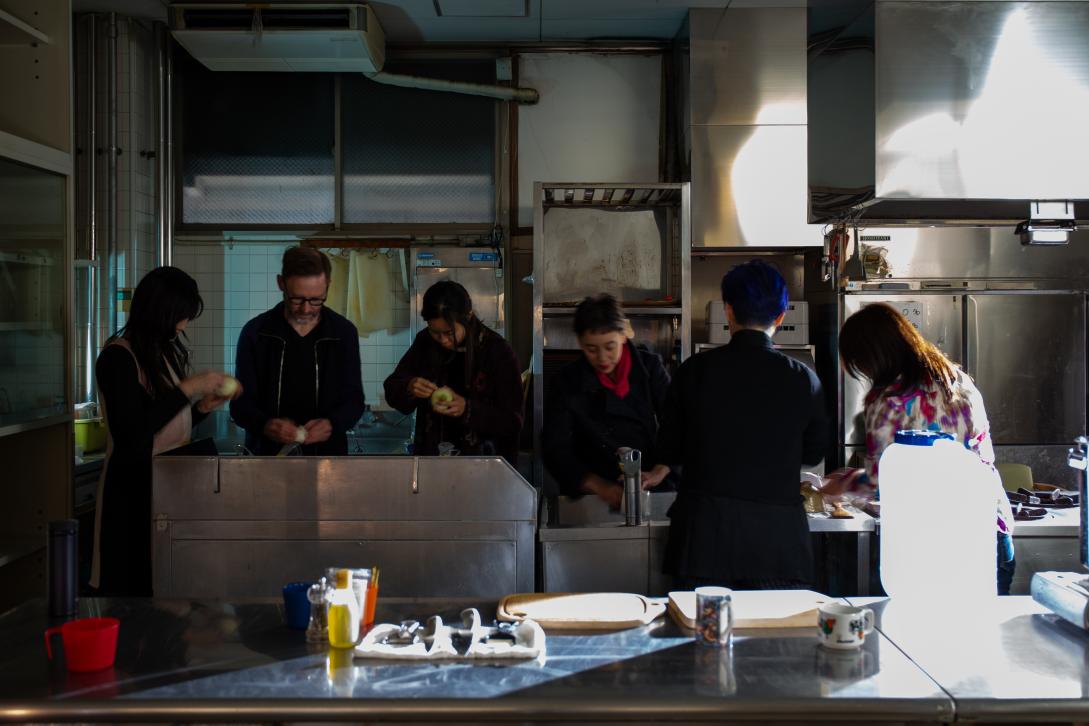Screening of Mobility and Extinction by Tanaka Koki, And a Dialogue

The “Urgent Talk” series of Mori Art Museum provide a platform for discussion around artists, curators, critics, activists and others across the globe engaged in significant, innovative work that demands urgent attention.
Between freedom of movement and restrictions on mobility, where are our ethics headed? Philosopher Samuel Schaeffler asserts that our ethical values are predicated on the continuation of humanity - and that we live now on the premise that humanity will continue to exist after our own death.
This edition of the “Urgent Talk” program will begin by screening Tanaka Koki’s latest film Mobility and Extinction, which was produced as a part of the cultural programs of the Delegation of the European Union to Japan, followed by a conversation between Tanaka and philosopher Yanagisawa Tami, who in fact participated in the work. The film is based on footage of an experimental event in March this year, which took place at an accommodation facility that had closed down due to the COVID-19 and later become used as a vaccination center. Two anthropologists, an activist, a political scientist, a media theorist, and a philosopher, proceed to have discussions based on a couple of science fiction-like scenarios of human extinction: one by an asteroid, and the other being rather slower-paced by humans being sterile. The work is also a documentation of essential human activities with their differing opinions about birth, climate change, climate refugees, Gaza, family, poetry, the body, norms, anxiety, right-wing politics, time, cats, and more, all jumbled up. How can we rethink the basic concept of mobility amidst the dramatically increasing threat of the climate crisis?
At this program, we will together contemplate how we can portray today’s world where pandemics strike humanity and wars continue to rage in many places across the globe.
Date and Time: 19:00-21:00, Tuesday, July 30, 2024 (Doors open 18:30)
Screening to start at 19:00 / Talk: 20:00-21:00
※Japanese-English simultaneous interpretation available
Venue: Auditorium, Mori Art Museum
Registration: https://www.mori.art.museum/en/learning/7366/index.html (Deadline: Sunday 28 July)
Capacity and Fee:
Capacity: 70 (booking required, first-come basis)
Free: (current exhibition cannot be viewed)
Appearing: Tanaka Koki (Artist), Yanagisawa Tami (Philosopher)
Moderator: Kataoka Mami (Director, Mori Art Museum)
Organizers: Mori Art Museum, Delegation of the European Union to Japan
Support: Goethe-Institut Tokyo
Tanaka Koki
Artist, born in 1975. Through multiple ways, including films and reflective writings, Tanaka engages in artistic practice that rethinks the nature of collaboration and community under the theme of “how to live together.” Recently, his practice has focused on the perspective of care, especially childcare. Tanaka has exhibited extensively, including at the Aichi Triennale 2019, Migros Museum (Zurich), Skulptur Projekte Münster 2017, the 57th Venice Biennale 2017, and the 55th Venice Biennale 2013. He received a special mention for his national participation at the 55th Venice Biennale, in 2013, and was Deutsche Bank’s “Artist of the Year” in 2015. Recent publications include Reflective Notes: Recent Writings (2020), Vulnerable Histories (An Archive) (2018) and Precarious Practice (2015).
Yanagisawa Tami
Born 1973 in New York, Yanagisawa is engaged in the philosophical and ecological study of artifacts. She holds the position of Associate Professor at the Faculty of Humanities, Nanzan University. Her edited work includes Disposition: The World as Arrangement (co-authored, published by Modern KOSAKU). Some of her notable papers include Reading Kazuo Ono from a Christian Perspective: Human as Fishing in Language and Culture 25 (Institute of Language and Culture, Meiji Gakuin University), Continuity in Thought: Toshio Kimura, Hisao Nakai in SITEZERO/ZEROSITE No.1 (Media Design Research Institute), and Self-expanding Image in Representation 01 (Representation Culture Theory Society/Monday Company).
Photo credit:
Tanaka Koki
Mobility and Extinction
2024
©Koki Tanaka





